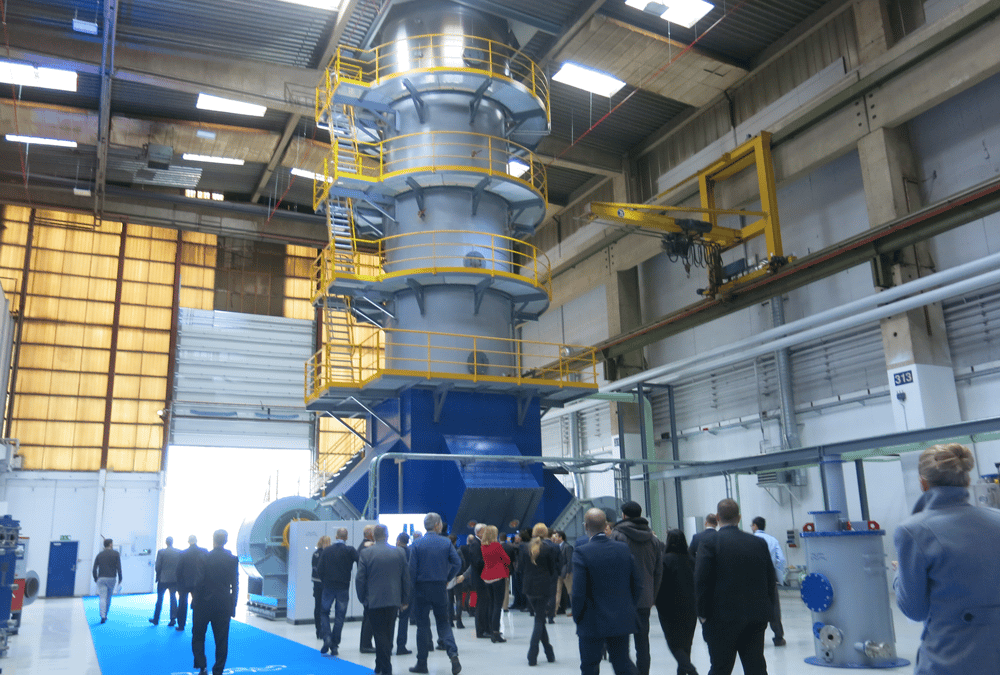The convenience and efficiency of Alfa Laval AQUA freshwater generation technology is now available to a wider range of vessels. With its tiny footprint and low OPEX, the new AQUA Blue Mini meets needs of 1–18 m3 of fresh water per day – creating a smarter alternative to bunkered water or reverse osmosis.
Introduced in 2008, AQUA freshwater generation technology uses a revolutionary 3-in-1 process where evaporation, separation and condensation occur in a single plate pack. Compact and energy efficient, this game-changing technology can now be used to meet smaller needs.
“AQUA technology has a history of making things smaller and simpler,” says Serdar Sengun, Head of Marine Heat Transfer Sales at Alfa Laval. “The AQUA Blue freshwater generator cut seawater needs and electrical power consumption in half compared to previous solutions. The AQUA Blue Mini nearly cuts size in half again, but above all it brings AQUA benefits to the smallest capacity range.”
Bringing cost and capacity in line
In the years since its launch, the AQUA Blue freshwater generator has become a leading choice for vessels with a larger need of fresh water. Able to produce up to 60 m3 of high-quality fresh water per day, the AQUA Blue C-type and S-type offer major space and energy savings over previous freshwater generators. For vessels needing fewer cubic metres, however, the capital investment in AQUA technology has sometimes outweighed the efficiency.
This changes with the AQUA Blue Mini, which is specifically designed for 1–18 m3 per day. “For vessels with smaller needs, such as those previously served by the Alfa Laval JWP freshwater generators, the AQUA Blue Mini balances capital cost with capacity,” says Sengun. “They get an equally efficient and reliable solution, but with an even smaller footprint and a lower capital investment.”
Vessels can abandon bunkering and reverse osmosis
In fact, the AQUA Blue Mini will be attractive to a whole new range of customers, including some who have never previously considered a thermally driven freshwater generator. Local fishing boats and smaller coastal vessels, for example, now have a smaller, smarter alternative to bunkered water or reverse osmosis.
“Bunkering water takes time and requires space, and the water’s quality is never certain,” says Sengun. “Reverse osmosis solves some of that, but it’s a sensitive process that clogs easily and demands lots of filter and membrane changes. The AQUA Blue Mini can make life much simpler on these vessels, giving them easy, constant access to high-quality fresh water.”
Less energy, effort and OPEX
In contrast to reverse osmosis, which is electrically driven, the AQUA Blue Mini runs on waste heat and uses only a small amount of electrical power. Moreover, its maintenance is limited to occasional Cleaning-In-Place (CIP) and fast, easy changes of the non-glued gaskets. Together, these facts mean lower OPEX for any vessel.
“Whether customers need one, ten or fifteen cubic metres per day, they’ll find an easy and cost-effective solution in the AQUA Blue Mini,” says Sengun. “Customers can count on high-quality fresh water – with a minimal footprint, minimal power consumption and minimal effort as well.”

